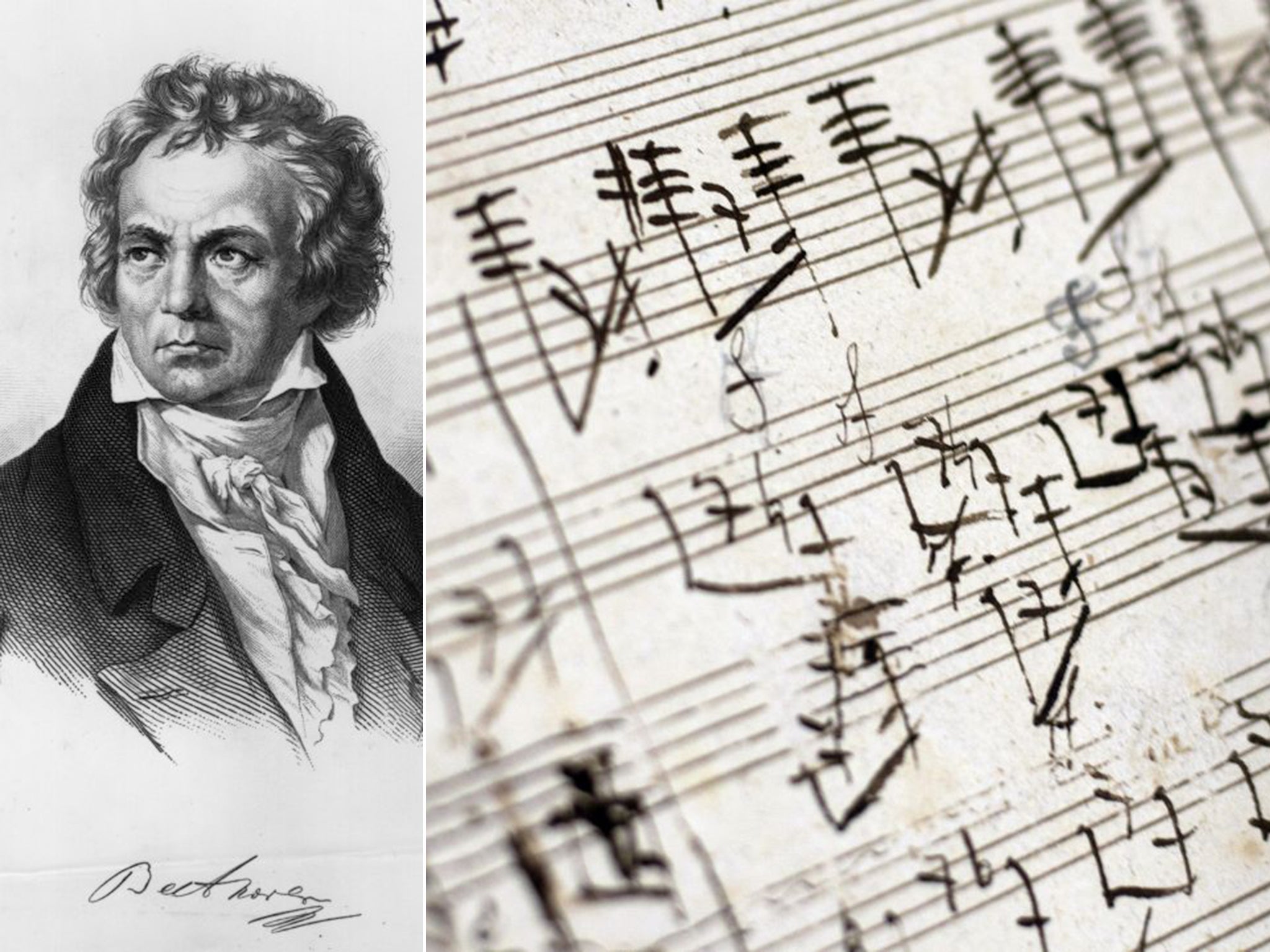Why Beethoven tugs at the heart strings: The rhythms of the German composer's music may have been prompted by a coronary disorder

Your support helps us to tell the story
From reproductive rights to climate change to Big Tech, The Independent is on the ground when the story is developing. Whether it's investigating the financials of Elon Musk's pro-Trump PAC or producing our latest documentary, 'The A Word', which shines a light on the American women fighting for reproductive rights, we know how important it is to parse out the facts from the messaging.
At such a critical moment in US history, we need reporters on the ground. Your donation allows us to keep sending journalists to speak to both sides of the story.
The Independent is trusted by Americans across the entire political spectrum. And unlike many other quality news outlets, we choose not to lock Americans out of our reporting and analysis with paywalls. We believe quality journalism should be available to everyone, paid for by those who can afford it.
Your support makes all the difference.Beethoven’s music may really have come from the heart. The composer may have been suffering from a heart rhythm disorder, arrhythmia, which is reflected in his works, researchers say. And the irregular heartbeat sensations he felt – and his increased sensitivity due to deafness – could be literally at the heart of his masterpieces.
“When your heart beats irregularly from heart disease, it does so in some predictable patterns,” says Dr Zachary Goldberger, the cardiologist who led the study. “We think we hear some of those same patterns in his music.
“Beethoven may have been reflecting his own physical sensations in his compositions – in other words, he was, in a sense, setting an arrhythmia to music.”
Some of Ludwig van Beethoven’s health problems, including his worsening deafness, have been well researched, but other medical problems, and the cause of his death, remain unclear. The researchers say some conditions that have been ascribed to him would have put him at significant risk of heart disease.
Writing in the journal Perspectives in Biology and Medicine, the researchers have revived speculation that he could have suffered cardiac arrhythmia, a condition that causes the heart to beat too fast, too slow, or with an irregular rhythm.
In Beethoven’s time, no tests were available for the condition, so the researchers used his music as a diagnostic tool in a search for clues. They looked at the rhythmic patterns of several compositions, and found that sudden, unexpected changes in tempo and key in Beethoven’s music appear to match such asymmetrical patterns.
In the last movement of Beethoven’s String Quartet in B-flat Major, Opus 130, for example, an emotionally charged piece that Beethoven said made him weep, the key suddenly changes to C-flat major. The unbalanced rhythm that follows evokes a shortness of breath, which can be associated with arrhythmia.
Beethoven’s directions to musicians playing the piece include the word beklemmt, German for “heavy of heart”. However, the word also has other connotations including the sensation of being pinched or squeezed, a feeling that is associated with cardiac disease, according to the researchers.
The opening of the Piano Sonata No 26 in E-flat major, Opus 81a, has an irregular dotted rhythmic pattern of two short notes and one longer note. “This sonata was composed at a time when Beethoven was under considerable emotional stress, a known trigger for arrhythmias,” the researchers say. “One reason for stress was Austria’s declaration of war against Napoleonic France,’’ Dr Goldberger, from the University of Washington School of Medicine, in Seattle, said: “One can usually become aware of one’s heartbeat simply by resting quietly, and surely there is no quieter existence than being completely deaf.” He described the works as “musical electrocardiograms”, an aural equivalent to the read-out of an ECG machine.
Join our commenting forum
Join thought-provoking conversations, follow other Independent readers and see their replies
Comments